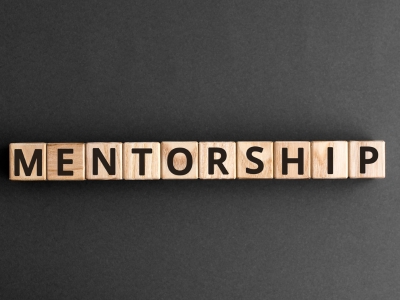
Fall 2023
Your Mentor has Feelings Too! Why the Mentor-Mentee Relationship Fails
Charles Jonassaint, PhD, MHS1
While much has been written about the qualities of an ideal mentor or mentee, little attention has been given to explaining why mentor-mentee relationships sometimes fail. In my 25 years as a mentee in academia and 10 years of mentoring as faculty, I have learned firsthand from dozens of mentor-mentee relationships, workshops, seminars, and casual conversations. I have made, and continue to make, mistakes both as a mentee and a mentor. Although some points outlined here build on discussions elsewhere, I want to highlight a major pitfall in mentor-mentee relationships that has received less attention and propose three tenets that can help mentees and mentors, particularly junior faculty or those new to mentoring.
I recently received feedback from a mentee who felt our mentoring sessions were too rushed, too short, and there wasn't enough time for all her questions. This surprised me, as I had assumed for the past year that she wanted to rush through our sessions. Receiving this criticism came as a relief, as it helped me realize my actions were making her feel rushed, not her desire to end the meetings quickly.
There are several potential reasons why I was not totally effective as a mentor in this situation. But I argue that a major reason, and a factor affecting many mentor-mentee relationships, is fear. It seems obvious that mentees would have anxieties about the future and a desire to impress, with the unequal hierarchical nature of the relationship making them particularly vulnerable. However, mentors can experience similar fears and anxieties as well. We're all self-conscious and may make some missteps in mentorship because of it.
In academia and industry, we are used to having our ideas and work criticized. In our work, we generally know what success looks like: published papers, awarded patents, funded grants, applause at a lecture. But how do you measure effectiveness as a mentor? I’ve spoken to mentors at all levels, and even Nobel laureates are not immune to feeling rejected or like failures as mentors. They too can feel rejected by a graduate student who finds their mentoring ineffective, leaves their lab, or even worse, leaves the field altogether.
As a mentor, you are tasked with imparting wisdom, providing emotional support, and ensuring the success of someone who may have vastly different life experiences than you. This is especially true for race-or gender-discordant mentor-mentee pairs. Even without major cultural or generational differences, official one-on-one mentoring relationships are challenging. The academic path to success is not well-described or set in stone and differs slightly for everyone. Mentors of mentees considering alternative careers may feel particularly inadequate and unequipped. In an anxious effort to be helpful, mentors may try guiding mentees toward areas more aligned with their own expertise. This can create resistance between what the mentee wants and the mentor's comfort zone.
Mentorship is a dynamic, reciprocal relationship that inherently carries many of the anxieties of formal adult relationships. It's often unclear when mentorship begins and ends, or how to end it. Even formalized graduate school mentoring with assigned matches can have unclear expectations and commitment from either side. As a mentee with varied interests, I often explored opportunities with multiple mentors — and mentees should have more than one. But relationships can become strained when mentor roles are unclear and mentee allegiances ambiguous.
There are several aspects of the mentor-mentee relationship that can cause anxiety. Instead of avoiding the fear of rejection and failure, we should embrace it as evidence that we care deeply about mentoring and the value we have to offer as people.
To help foster more effective mentorship, I propose three key tenets that must be present for a successful mentor-mentee relationship:
Trust Each Other: There will always be times when, as a mentee, you doubt your mentor has your best interests in mind. Similarly, as a mentor, you may not trust your mentee to make the right decisions or do what is needed to be successful. Mistrust can be insidious in any relationship. It's important to default to believing the mentor has the mentee's best interests at heart and vice versa.
The Mentee Benefits More: The mentor-mentee relationship should be mutually beneficial, but the benefits should disproportionately help the mentee. Mentors must avoid the temptation to leverage mentees to push their own research agenda or farm them for ideas and literature updates. In turn, mentees should appreciate that mentoring is a voluntary and undervalued academic activity. Effective mentoring takes time and can even slow productivity.
Communicate Early and Often: Expectations should be clear at the start of the mentoring relationship. Seek clarification frequently. Address any potential problems early on for the best outcome. If there hasn't been a difficult conversation at some point, then either the relationship is just beginning, or it is ineffective.
Sometimes fear prevents us from trusting, giving more than receiving, and speaking up when needed. But following these tenets can promote more effective mentoring.
Affiliation
- Associate Professor, University of Pittsburgh
Additional Resources
Chopra V, Edelson DP, Saint S. Mentorship Malpractice. JAMA. 2016;315(14):1453–1454. doi:10.1001/jama.2015.18884
Humphrey HJ. Mentoring in Academic Medicine. Philadelphia, PA: ACP Press; 2010.
https://ofasd.msu.edu/mentoring/best-practices-for-mentors-and-mentees-in-academic-settings/
